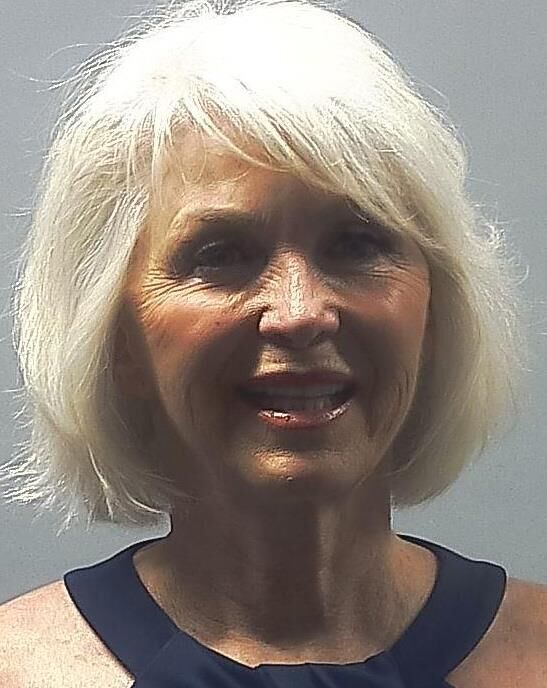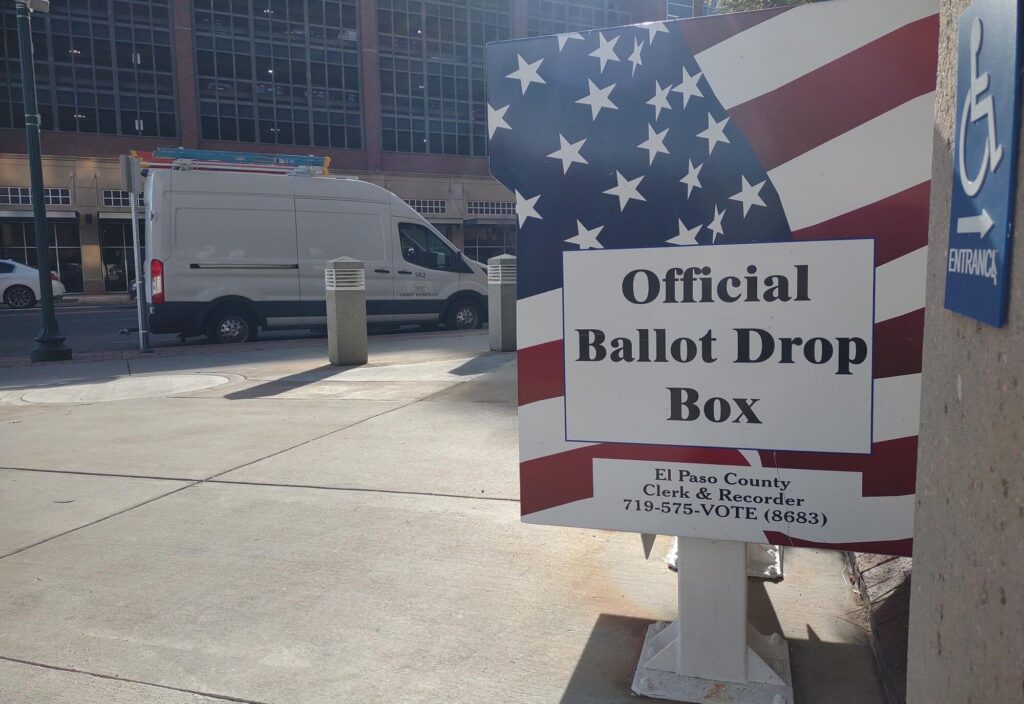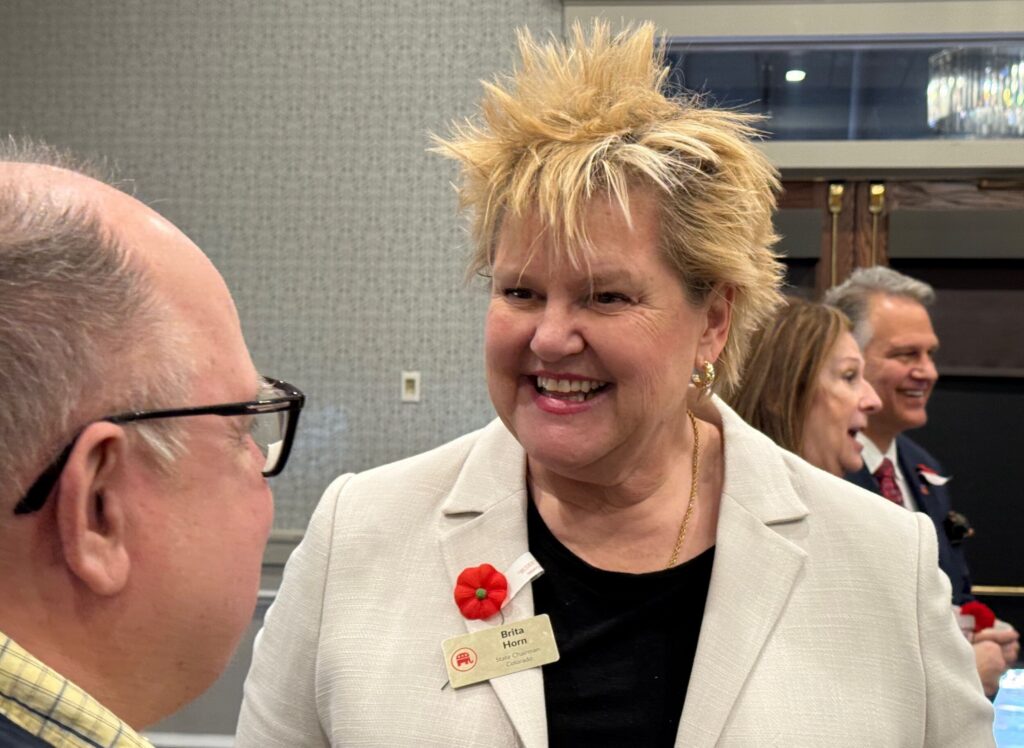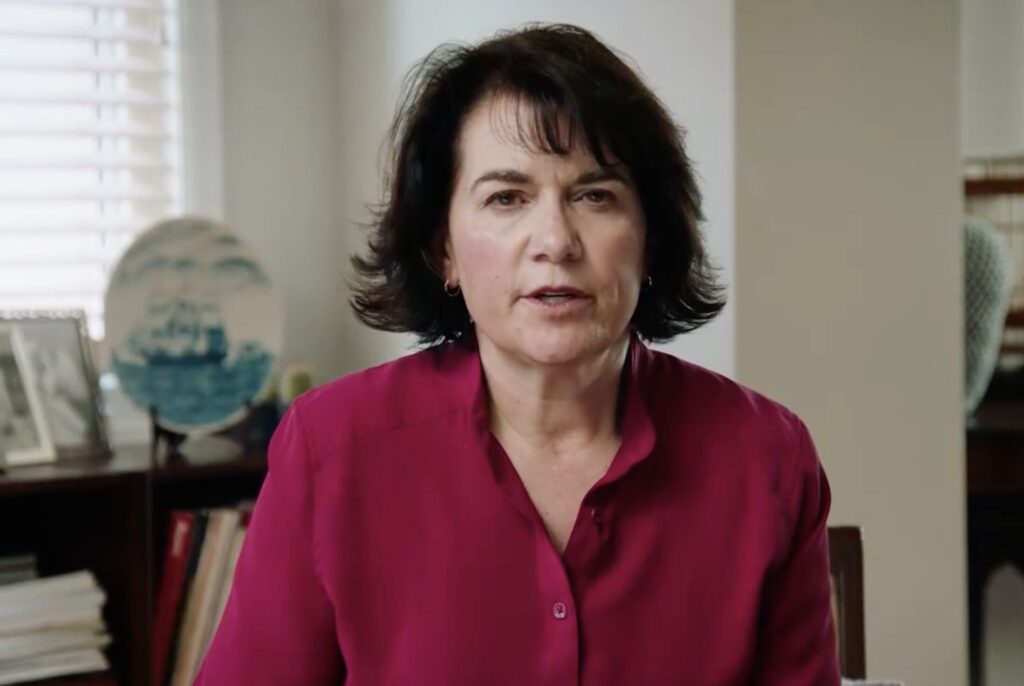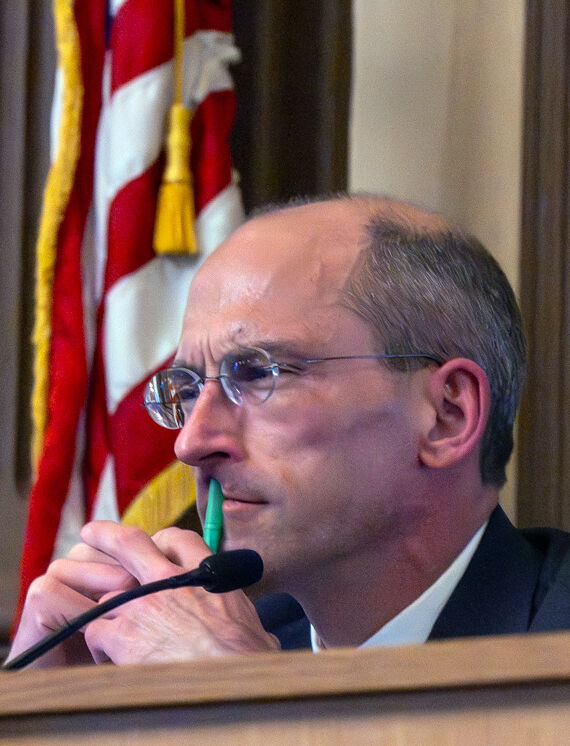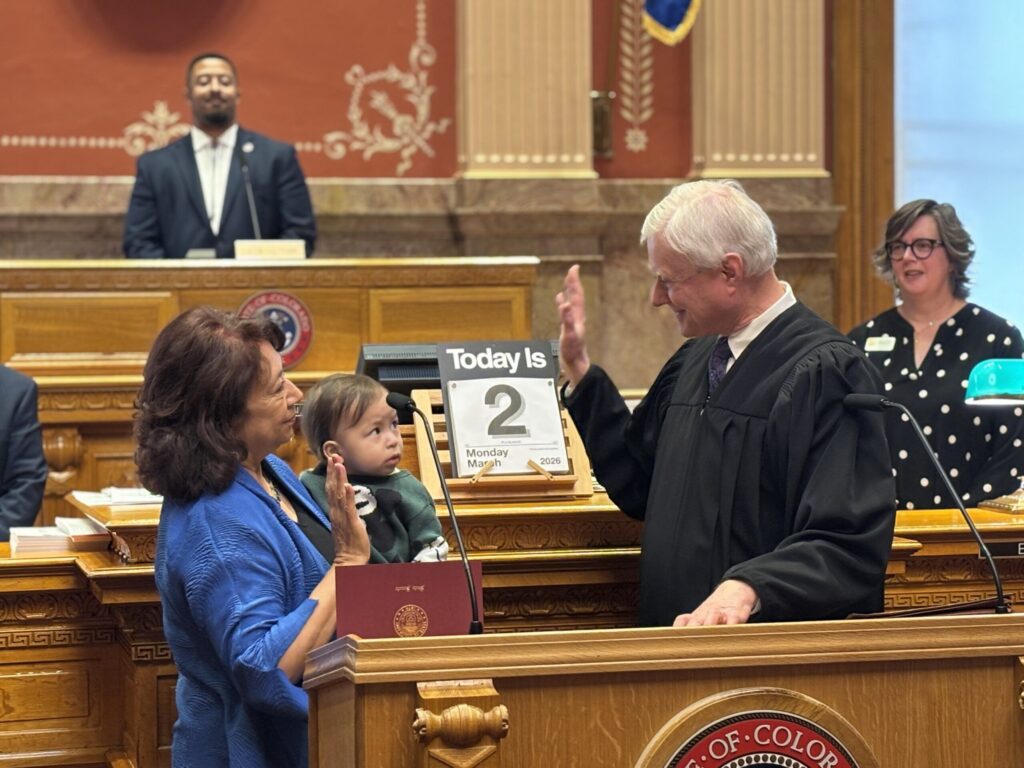Campaign finance complaints add up for Bennet campaign
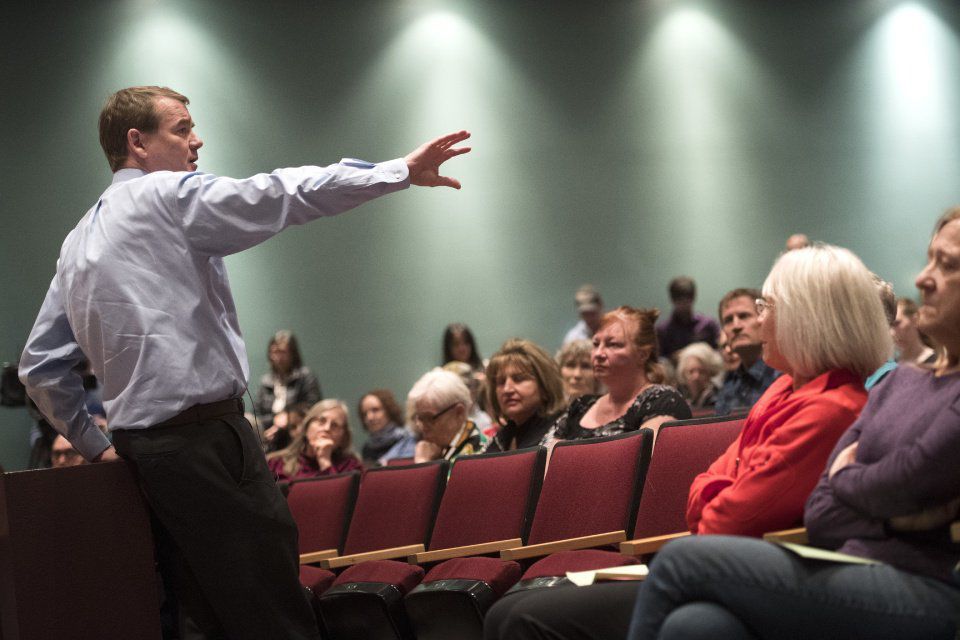
Three state campaign finance complaints have been filed against U.S. Sen. Michael Bennet, D-Denver, tied to his campaign for governor in 2026.
A fourth is likely, sources have told Colorado Politics.
The first two were filed on Sept. 24 and on Nov. 4 by Alyssa Holladay of Denver. Her political affiliation is unknown.
The first two complaints were consolidated by the secretary of state’s elections division on Nov. 17. A response is due from the Bennet campaign on Dec. 3.
The September complaint said Bennet is a candidate for both governor in 2026 and for the U.S. Senate in 2028 and he is actively fundraising and spending money for both races.
Bennet, the complaint noted, filed a candidate affidavit for the Senate race on March 11, 2024. He announced his intention to run for governor on April 11, 2025.
As for his fundraising efforts, the Bennet for Governor campaign raised $1.77 million in the second quarter of 2025 and $22,000 for his Senate reelection campaign in the same quarter.
The Senate campaign committee spent $142,000 in that same quarter, despite “there not being any apparent Senate Reelection campaign currently operating,” the complaint alleged.
The gubernatorial committee spent $395,000 in that same time period.
The complaint alleged that the spending from the Senate committee was actually on costs tied to Bennet’s gubernatorial campaign, such as for fundraising, flights, hotels and staff reimbursements.
The complaint noted a fundraiser for the gubernatorial campaign in California during the second quarter. Yet there were no flights or travel costs for Bennet disclosed, other than a $161.40 expenditure to Hotels.com. The Senate campaign, on the other hand, spent $17,494 for 92 travel expenditures.
The complaint concluded that the Bennet for Governor campaign failed to disclose significant travel expenses or that the Bennet for Governor campaign relied on the Senate committee to pay for those travel costs, which is an illegal contribution by a federal candidate in violation of state law.
“These violations are not mere paperwork errors,” the complaint said, “but go to the heart of Colorado’s laws for fair, ethical and transparent campaigning.”
The candidate for a statewide office “chose to simultaneously keep open and active his status as a federal candidate for Senate reelection, and with it his federal campaign account that benefits from significantly higher campaign contribution limits,” the complaint said.
The Elections Division determined the complaint met the three-pronged test for review, but added that “these initial determinations are not a determination that Respondents have violated Colorado campaign and political finance law.”
Some of the allegations in the complaint are curable, the Elections Division wrote, giving an Oct. 23 deadline for submitting a notice that the campaign intends to make those corrections.
While the campaign did not submit the notice, the expenses for the second quarter did show up in the campaign’s Oct. 15 report, which listed more than 70 expenses between April 1 and June 30 for food and beverage and travel and lodging totaling almost $40,000.
The second complaint alleged much of the same as the first – that the Bennet gubernatorial campaign used Senate campaign funds to cover expenses for the gubernatorial campaign.
This complaint covered the third quarter of 2025, from July 1 to Sept. 30.
The complaint noted fundraising costs paid for by the Senate account, using the same fundraising consultant as the gubernatorial campaign. In the third quarter, the consultants were paid $57,152 by the gubernatorial campaign and $26,500 by the Senate campaign.
But the Senate campaign raised only $3,875 in the third quarter, the complaint noted, in effect paying the consultants $1 for every 15 cents they raised.
“This creates a strong implication that those consultants” were paid by the Senate campaign, not to fundraise for Bennet’s Senate reelection — but for the gubernatorial campaign, an illegal contribution from a federal candidate committee to a state candidate committee, the complaint said.
Travel costs also came up in the second complaint.
The Senate campaign spent $9,106 for hotels, flights and car trips, which the complaint said defied logic — that the Senate campaign would pay for travel around the country to raise just $3,875. The Senate campaign is fundraising at a net loss, which is “not a plausible explanation” for a Senate campaign, the complaint said.
The complaint also noted a Colorado Sun story on Oct. 24, which included a statement from the gubernatorial campaign that the Senate campaign acted to “transition appropriate activities and expenses” to the gubernatorial campaign.
A gubernatorial campaign spokesperson said that, “as it became clear that there were limited opportunities to raise funds for the Senate campaign account, the consulting contracts of the named firms were not renewed. We believe we have addressed any concerns.’”
Such transfers are illegal, the complaint said. A federal committee cannot transfer funds, operations, expenses to a state candidate committee, the complaint said.
“While the Bennet for Governor campaign’s statement to the Colorado Sun attempts to allay concerns that one campaign’s resources are not illegally backfilling the other campaign — the statement to the Colorado Sun says that is exactly what is happening. In this single statement, the Bennet for Governor campaign concedes to having violated Colorado law — by the Bennet for Governor campaign assuming expenses for the Bennet Senate Reelection campaign.”
If the Secretary of State’s Office finds these violation to be curable, the complaint added, the gubernatorial campaign must reimburse the Senate campaign for every dollar that improperly benefitted the gubernatorial campaign.
On Nov. 17, the Secretary of State’s Office found that complaint met the three-pronged test and set a date of Dec. 3 for the gubernatorial campaign to file a Notice to Intent to Cure form.
The third complaint was filed by Ethan Au Green, who filed similar complaints against Attorney General Phil Weiser’s gubernatorial campaign and Secretary of State Jena Griswold’s campaign for attorney general.
Au Green claimed all three campaigns took aggregated cash contributions of more than $20 that did not include a name and aggregated contributions of more than $100 that did not include names, address, employer or occupation.
State law does not require disclosure of the name of a contributor of a donation of less than $20. The campaign listed aggregated cash contributions of more than $20 but did not disclose the funders.
Such small contributions are often collected at campaign events and disclosure of donations under $20 is not required by state law.
The complaint showed 133 contributions that met or exceeded the $100 minimum for disclosure and did not list an employer or occupation.
The initial review on that complaint is due Dec. 8.
Sources have told Colorado Politics a fourth complaint is coming, tied to an appearance in May by Bennet in an Instagram video hosted by political influencer Katie Grossbard.
According to Colorado Public Radio, Weiser was given the same opportunity, but would have had to pay Grossbard $2,000. Bennet, on the other hand, was not charged to appear in that video, according to an associate of Grossbard’s.
Because Grossbard did not require Bennet to pay for his appearance in her video, it could be considered a campaign contribution, sources said.
A $2,000 contribution would also exceed the state limit of $1,500 in contributions by an individual.


